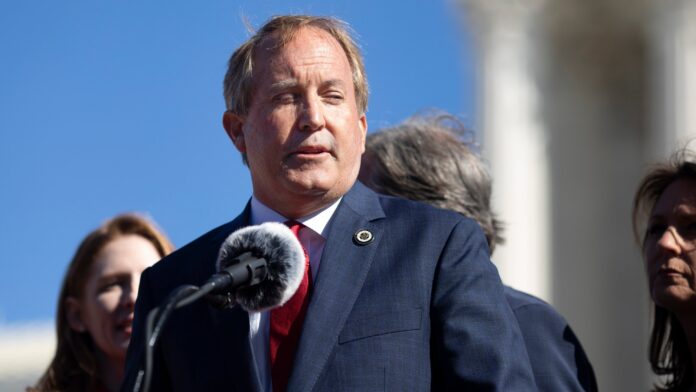In a stunning turn of events, Texas Attorney General Ken Paxton, who’s no stranger to controversy, might be headed for impeachment. A Texas House panel on Thursday greenlit the move, stating Paxton may have violated several laws, even felonies, by using his official position to benefit a friend and political donor, Nate Paul.
You’d think an attorney general would be well-versed in the law. But Ken Paxton, the very same official who audaciously sought to invalidate an election, seems to think otherwise. In response to the panel’s decision, Paxton accused his fellow Republicans of being puppets for liberal Democrats. In a bizarre twist, he alleged that the impeachment proceedings would effectively be “overturning the results of a free and fair election,” thereby “overthrowing the will of the people and disenfranchising the voters” of Texas.
This is a rather ironic stance for Paxton, who, after the 2020 presidential election, was at the forefront of efforts to overturn the results in four states that swung in Biden’s favor. He tried to argue that Biden’s victory was statistically improbable, and his pleas were dismissed, even by his Republican colleagues. In fact, Florida’s attorney general’s office staffers, in internal emails, labeled Paxton’s brief as absurd and speculated if it was a plea for a pardon.
And despite his objections, Paxton ended up playing a rather infamous role in the turbulent aftermath of the 2020 election. He went to Washington, DC, where he joined a roster of Republican officials addressing Trump supporters just before the infamous January 6th storming of the Capitol.
Paxton and his team have put forth a dubious legal argument that a public official can’t face impeachment after an election for actions that were widely acknowledged before that election. Yet, this stance contradicts Paxton’s persistent denial of the very facts underpinning the allegations against him. Furthermore, his attempts to settle the claims of whistleblowers he fired, to avoid a public trial, were what prompted the legislative investigation in the first place.
As we speak, the ball is in the court of the lower chamber of the legislature, which has until Monday to vote on Paxton’s impeachment before the regular session concludes. Paxton can lament all he wants about the “overthrow of the will of the people and disenfranchisement of voters.” But let’s not forget: those who are deliberating his fate are elected officials too. They represent the people, and their decision will reflect the democratic process in action.



